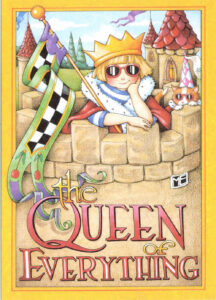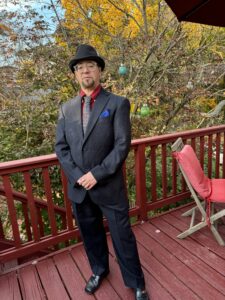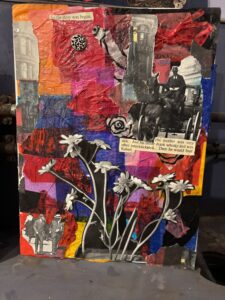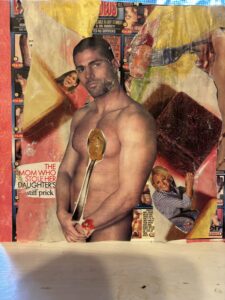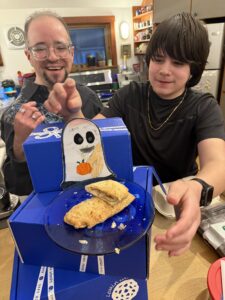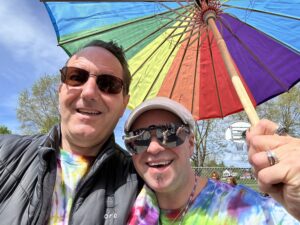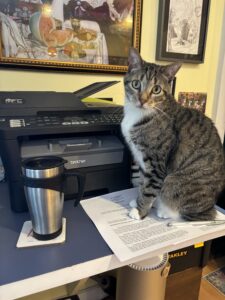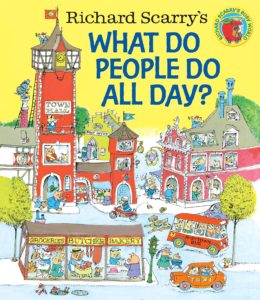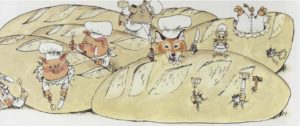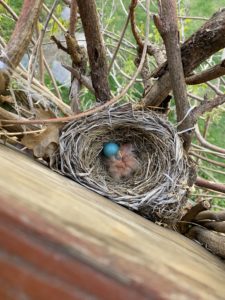February already? When the passage of time surprised me, I used to think “Have I done enough work on my novel?” but now I think “One fewer month of the Trump presidency.”
Close friends of mine recently became first-time parents. When I check in with the mom about her sleepless little angel, I remember the unnecessary self-doubt that was instilled in me about having boundaries as a “mother”. I put the term in scare quotes for gender identity reasons, but also because “motherhood” is a societal idol that eclipses the actual person in relationships with her baby and the world.
At Electric Lit, Sarah Wheeler reviews Nancy Reddy’s parenting meta-advice book, The Good Mother Myth. Her interview with Reddy, “What a Bunch of Monkeys Taught Us About Motherhood–and Why It’s All Wrong,” summarizes how the science behind attachment parenting, including Harry Harlow’s famous wire monkey experiment, was heavily skewed by social pressure to push women out of the workforce after World War II.
Harlow is a really fascinating example of what happens when scientific research escapes academia: how it circulates and recirculates, and how much nuance is lost and how things get used for other purposes. In 1959 he gave this talk as president of the American Psychological Association (APA) called “The Nature of Love.” He played 15 minutes of a video where you see the baby and the cloth mother. And he says something like, ”Look at her. She’s soft, warm, tender, patient and available 24 hours a day.” And that’s really what got picked up about what it means to be a mother. But even in that talk, there are these little moments that are actually pretty radical, where he says, for example, if the important variable is not lactation but comfort, men could be good monkey mothers too. And nobody picks that up!
As a result, Reddy notes, stay-at-home motherhood ends up importing the competitive individualism and anxieties of the capitalist workforce into the home:
It is so easy to see motherhood as a professional identity– that it’s the most important job in the world, and it’s so high stakes, it can only really be done well by the biological Mother and…you should bring all of the skills from your education and your professional life to bear on this work. And I am really aware of how that approach to parenting sucks the joy out of so much of it. If you’re trying to improve your performance as a parent, it’s really hard to actually connect with your kid, which is where the joy is.
Or as I say to Shane when he complains that I haven’t brought him enough ice in his water glass, “Whattaya gonna do, leave me a one-star review on Yelp?”
My alma mater, the Death Star…oops, I mean Harvard…has been way out front in capitulating to Trump’s DEI purge. I thought I was beyond being disappointed, but I hoped that institutions with such tremendous financial and cultural capital would put up a little more of a fight to save civilization. This Harvard Magazine article from Jan. 29, “A Shakeup at Harvard’s Legacy of Slavery Initiative,” describes the university’s abrupt decision to close the Harvard Slavery Remembrance Program (HSRP) and outsource its work to American Ancestors, a lesser-known and presumably lesser-resourced genealogy research nonprofit. HSRP’s mission had been to track down living descendants of people who were enslaved by Harvard and its faculty and administrators, with the goals of reparations, correcting the historical record, and helping descendants’ families discover their roots. Some researchers affiliated with the shuttered project speculated that the administration was unpleasantly surprised by the scope of Harvard’s slavery ties and the number of descendants who might have a claim.
Anyway, here’s some good poetry. “Science” by Susie Meserve, at Palette Poetry, opens with an injunction–or perhaps a prayer–to “Let It”. Let it hurt to love what is mortal, let yourself persevere through the discomfort of birthing new life or facing terminal cancer. “Science, the miracle./Science, the limit.”
Enjoy a laugh of self-recognition with Ruth Bavetta’s poem “The New Battery Should Come Tomorrow,” published April 24 in Rattle. One undone household task leads to distraction by another, and by the chain reaction of emotional associations and memories that any mundane object can set off. Nothing gets done, but we’ve certainly gone on a journey, and maybe that’s what we needed!



